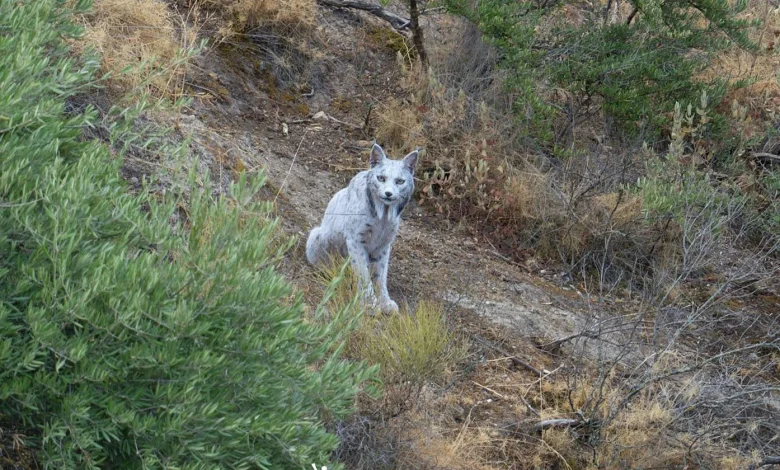Photographer Captures the First Known White Iberian Lynx in the Wild

The first-ever documented leucistic Iberian lynx. | Ángel Hidalgo (@angeliyo_o)
A young amateur photographer in Spain has captured the first-ever images of a white Iberian lynx — thought to be one of the rarest big cats on the entire planet.
29-year-old Ángel Hidalgo works at a construction materials factory, but every spare moment is devoted to photographing nature. He often travels across the region of Andalusia in search of wildlife and, over a month ago, set up a camera trap. When he reviewed the footage, he could hardly believe what he saw.
“I thought it was a camera effect,” Hidalgo tells National Geographic España about the moment he first saw an image of the ghostly cat. “And from then on, I dedicated myself to the search for the lynx. I’m still in shock.”
After seeing the camera trap footage, Hidalgo was desperate to see the “wonder” with his own eyes. What followed was many failed attempts: “On many occasions, I was about to throw in the towel,” Hidalgo writes on an Instagram post
But one gloomy morning, after it had rained all night, Hidalgo set out once again to try and find the mystery animal. “I was walking, as I had so many times, when suddenly in the distance I saw a white bump that seemed to radiate its own light.”
With his own eyes, Hidalgo observed the leucistic Iberian lynx covered in snow-white fur and gazed into its penetrating eyes. “I was stunned, I couldn’t believe what I was seeing. I felt very fortunate to witness this moment, to be able to see this great cat in its natural habitat.”
The animal Hidalgo saw and photographed is a leucistic Iberian lynx. Leucism results in a partial loss of pigmentation, causing the animal to appear white.
National Geographic España notes that the Iberian lynx was reclassified from endangered to vulnerable last year, a major biodiversity success in Spain. There are now 2,400 individuals on the Iberian Peninsula.
“Meeting this feline was an unforgettable memory for me, and it made me think about the importance of nature and conservation,” adds Hidalgo, who is not disclosing the specific location he took the photo as illegal hunting continues to affect the Iberian lynx population.





